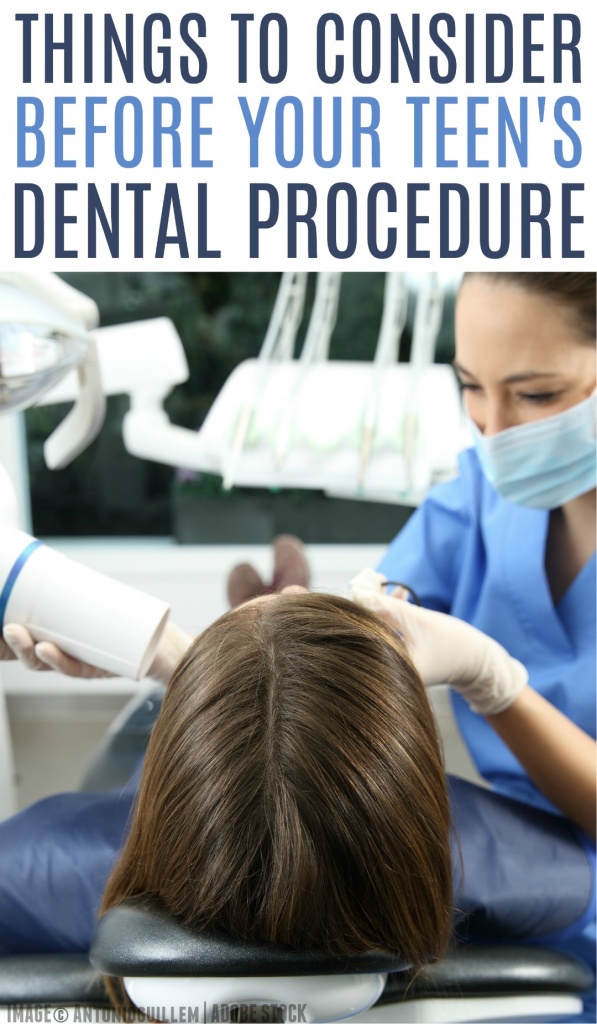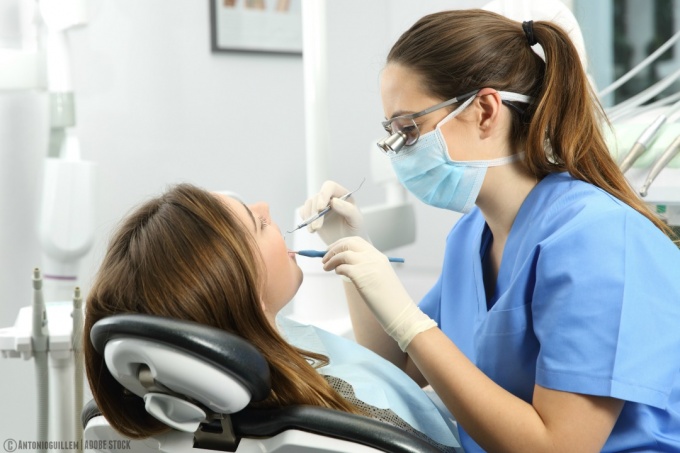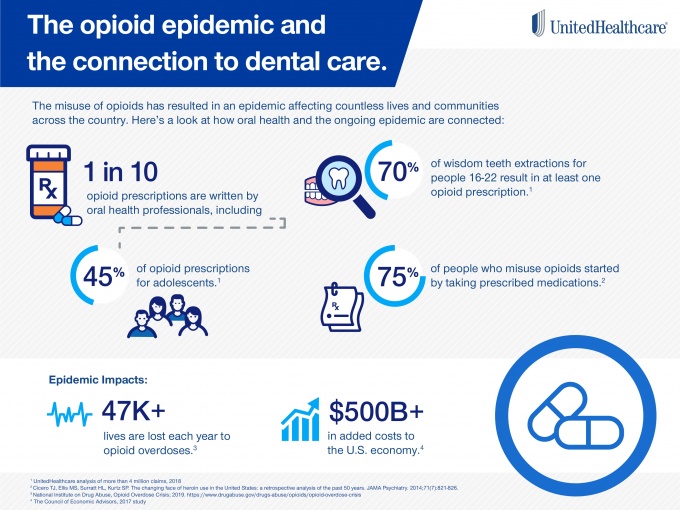If you've got a teen who needs to undergo dental work or have oral surgery, there are a few things you need to be aware of. I've partnered with UnitedHealthcare to share more information about oral health and opioids.

By now, we've all heard and read numerous stories about the opioid epidemic in the United States. If you haven't been personally affected by it yet, I bet you know someone who has been. According to the Centers for Disease Control & Prevention (CDC), opioid misuse causes 130 overdose deaths per day in the US. What's staggering is that in 2017, the number of overdose deaths involving opioids (including prescription opioids and illegal opioids like heroin and illicitly manufactured fentanyl) was six times higher than in 1999. Less than 20 years later and the numbers have skyrocketed. This is a huge cause for concern, especially for parents.
I remember the first time I underwent a surgical procedure when I was 19. The doctor prescribed me painkillers for my recovery, but they made me horribly sick. When I had to have my wisdom teeth removed the dentist prescribed me an opioid for pain relief but I didn't want to take them. I remembered how terrible they made me feel a few years before and I decided that I could make do with over-the-counter medications instead.
According to Dr. Ted Wong, Chief Dental Officer of UnitedHealthcare, "Painkilling prescriptions are often necessary and useful for some medical conditions; however, these powerful drugs – such as oxycodone or codeine – come with a high risk of misuse and addiction. This is especially true for teens and young adults." Studies have shown that brains continue to mature and develop throughout childhood and adolescence and well into early adulthood (source). This might explain why teens are more likely to engage in risky behaviors, including misusing opioids.

As Dr. Wong states, "One potentially overlooked aspect of the opioid epidemic is the connection to dental treatments. In fact, oral health professionals write 12 percent of all opioid prescriptions, including 45 percent of opioid prescriptions for adolescents, according to a recent UnitedHealthcare analysis of claims data."
The connection between oral health and opioids

As parents, it's important to recognize the risks for our children who are about to undergo dental work or tooth extraction. Here are a few things for you to consider if your child may be prescribed opioids after dental work.
Wisdom Teeth: While wisdom tooth extraction seems almost commonplace in the US, with more than 5 million people having the procedure last year, parents need to be aware of the risks associated with the potential exposure to opioids after the extraction. For many teens, this is their first exposure to opioid medications and a recent study from Stanford University found that dental opioid prescriptions after wisdom teeth removal may be associated with subsequent opioid use and opioid abuse.
Limit Supply: Unless your child has an extreme case, it's imperative to limit their opioid prescription to the minimum dose and number of days. The CDC recommends 3 days and fewer than 50 morphine milligram equivalents each day. Why 3 days? The likelihood of chronic opioid use increases after the third day of use and rises rapidly thereafter, according to the U.S. Department of Health and Human Services. Misuse or dependence on opioids can lead to addiction to more powerful illicit drugs afterward.
Think about the alternatives: If your child is prescribed an opioid following a dental procedure (or another medical event), you should ask your provider if there are any alternatives to opioids. In some cases, over-the-counter pain relievers like acetaminophen and ibuprofen will be sufficient to manage your child's pain without the risk of addiction.
Dispose of remaining medication properly: If you do end up with an opioid prescription, be sure to keep it in a safe place, like a locked filing cabinet. Also, be sure to properly dispose of any unused pills or elixirs in a timely manner. According to the CDC, approximately 70 percent of misused opioid prescriptions were obtained, stolen or purchased from a friend or relative. You can do your part in preventing that from happening by returning unused medication to your local pharmacy or mixing them with water and then pouring into the trash or cat litter. Don't simply throw out unused pills or bottles since they can easily be retrieved.
Are you concerned about the connection between oral health and opioids?
Visit UnitedHealthcare to learn more about how we can work together to curb the opioid epidemic. Join the conversation with #teensteethandopioids.
Special thanks to UnitedHealthcare for sponsoring this conversation. As always, all opinions are my own. Images are copyright Antonioguillem via Adobe Stock.


Mia E. says
This is very timely information as I have been hearing so much about the opioid epidemic so this would really make me think about dental procedures for my grandkids and how important it is to ask questions regarding prescriptions.